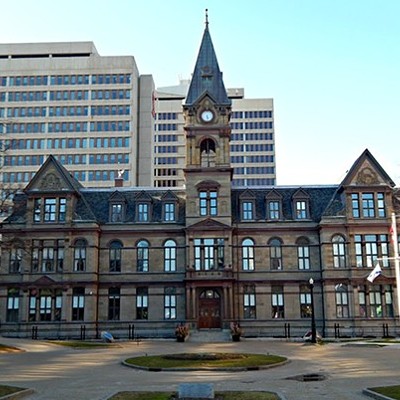David MacDonald touches on an important issue, namely how to improve the criminal justice system in relation to sexual assault ("Safe on the stand after Ghomeshi," The City, May 12). There is, however, little that indicates how to accomplish this. Nova Scotia's Progressive Conservative leader Jamie Baillie's proposed Dignity for Victims of Sexual Violence Act seems bereft of tangible substance (as even he appears to admit), and while it is true that the administration of justice is in the hands of the province, criminal law (and amendments thereto) are a federal responsibility.
Court-appointed lawyers might help prepare witnesses, but as criminologist Diane Crocker points out in MacDonald's article, under Canadian law they have no legal standing in a trial.
Sexual assault is a crime and needs to be prosecuted as such under the Criminal Code. This is a tough, rigourous, formal, lengthy, costly and adversarial system that often ramps up antagonism and frustration. It has crucial legal principles like the presumption of innocence and the right to remain silent. The burden of proof is on the Crown to make its case and the bar is set very high (beyond reasonable doubt).
All these are essential to prevent miscarriages of justice.
That said, there is much that is hateful, discriminatory, disrespectful and misogynistic in our society that doesn't reach the threshold of a criminal act. Think back to the Saint Mary's University rape chant or the Dalhousie dentistry students' "Gentlemen's Club." These weren't criminal acts, however—what they illustrate is discriminatory, disrespectful and misogynistic attitudes in our society, and these need to be addressed. This is something that all levels of government and everyone in society can do something about.
The starting point must be education—from pre-school to post-graduate—that makes crystal clear that subjecting women to discriminatory or disrespectful behaviour is wrong and intolerable. No means no.
Everyone (and this applies to people of different colour, race, sexual preference, ethnicity, religious preference or any personal characteristic as well) has the right to equal treatment, and divergences from this are offensive—not simply to the person involved, but to all of society. In the long run, only changing attitudes will solve systemic sexism.
We also need other mechanisms to address non-criminal but sexist conduct. Peace bonds are one approach. Other dispute-resolution mechanisms, for example restorative justice, are another. Restorative justice endeavours to balance needs of victims, offenders and communities, rather than simply focusing on punitive measures. The process can be less charged and with more scope for discussion, mediation, resolution and apology. Where it has been employed (and it does require that both parties agree to this approach) it improves outcomes for victims, perpetrators and communities, and decreases recidivism. Former BC Crown prosecutor Sandy Garrasimo has suggested that some cases of sexual assault be steered through the civil law system where the threshold of proof is significantly lower, i.e., a balance of probabilities.
Criminal law should be used to address criminal acts. This is not, however, the only vehicle to address sexism and misogyny in our society. Changing attitudes, prejudices and social behaviour is something everyone can contribute to. —Christopher Majka, Halifax
Council counsel
"We haven't had such a high turnover rate before," says District 7 candidate Dominick Desjardins ("The underdog Dominick Desjardins" City story by Jacob Boon, May 26). "It's really exciting to see that change." What? In 2012 four councillors were in races against other incumbents (due to the council size change). We were guaranteed a new mayor. One district had no incumbent. Two sitting councillors (Uteck and Lund) were defeated by newbies on election day.
If your campaign is going to be based on big visionary statements, at least pick ones that aren't dead simple to refute. —posted by Ben Wedge at thecoast.ca
















